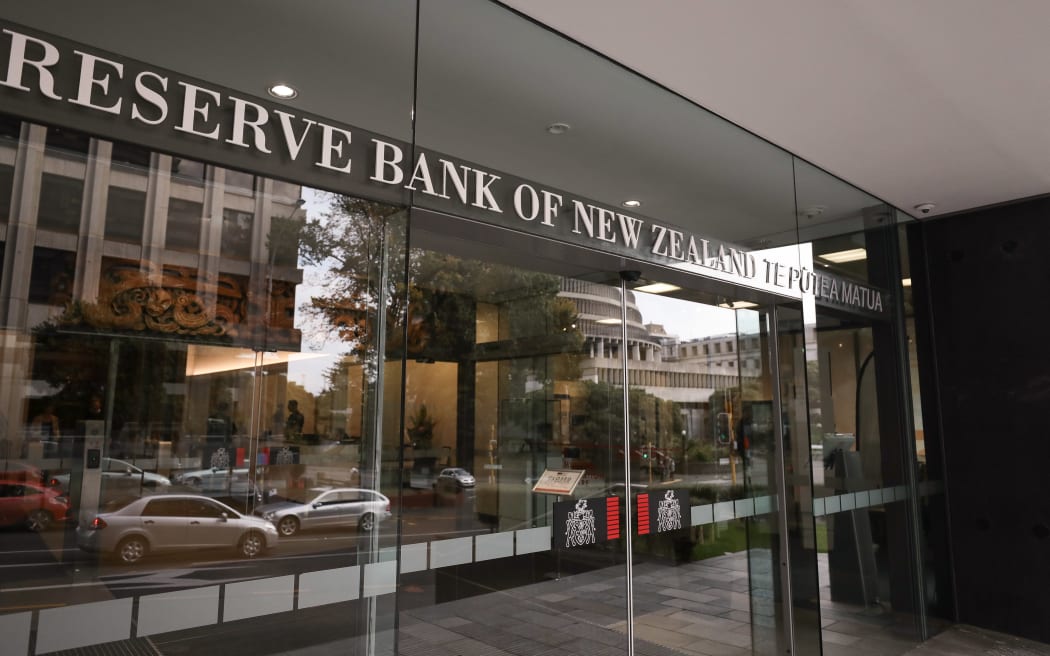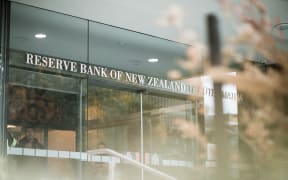The Reserve Bank has raised the official cash rate to a six-year high and promised more rises until it gets inflation under control.

Photo: RNZ
The benchmark rate was raised, as expected, by 50 basis points - half a percentage point - to 2.5 percent.
In a brief statement the Monetary Policy Committee said the economy was still performing strongly, the labour market remained tight, and households were in good financial shape.
However, it reaffirmed its hawkish approach to tackling inflation, currently at a 30-year high of 6.9 percent.
"The committee is resolute in its commitment to ensure consumer price inflation returns to within the 1 to 3 percent target range."
It said inflation was being stoked around the world by a wide range of factors, including Covid-19-related supply chain disruptions and the Ukraine war.
"Food and energy prices are especially affected by geopolitical tension."
The committee said the tight labour market and low unemployment rate were supporting domestic spending, household finances were "resilient", strong exports were supporting the economy as was broad government spending.
"Labour and resource scarcity are also contributing to upward price pressures which are currently exacerbated by seasonal illness, a resurgence in Covid-19 cases, and a net outflow of labour abroad."
It said it was possible that inflation would push higher but accepted that growth could also be hit in the medium term.
"The committee agreed to continue to lift the OCR to a level where it is confident consumer price inflation will settle within the target range."
It said it would stick with the cash rate rises outlined in the May monetary statement, which projected the cash rate at 3.5 percent by the end of the year and pushing to at least 4 percent by the middle of 2023.
"Once aggregate supply and demand are more in balance, the OCR can then return to a lower, more neutral, level."
Many economists believe the RBNZ will pause at the end of the year to assess the impact of the rate rises and reduce the risk that it pushes the economy in to recession.
ASB economist Nathaniel Keall said the RBNZ had kept to the script and delivered a barely changed statement from May, with the necessary fighting talk.
"The money shots were all here, with 'the committee is resolute in its commitment to ensure consumer price inflation returns to within the 1 to 3 percent target range,' and 'briskly lifting the OCR' remains the best approach."
He said the RBNZ's commitment to its May forecasts risked doing too much too quickly, but said that would likely be less painful than having to impose even more high rate rises, which could risk "crunching" the economy if inflation got out of control.
ANZ chief economist Sharon Zollner expected more rate rises through to the end of the year.
"We continue to expect another 50 basis points hike at the August Monetary Policy Statement, with more cautious 25bp moves from there as evidence mounts of a slowdown in consumption and construction," she said.
"However, any upside surprises to inflation would up the odds of a continuation of 50bp hikes beyond August and/or a higher endpoint than the 3.5 percent peak we are forecasting."
The latest inflation numbers for the three months ended June are due next week, with broad expectations the annual rate will push through 7 percent.
Corelogic chief property economist Kelvin Davidson said further mortgage rate rises could be expected.
"On balance, given the prospect that our OCR will keep going up for a while yet and inflation globally is not yet tamed, it seems unlikely that we've seen the end for mortgage rate increases in this cycle."
He said about half of short term fixed rate mortgages would need to be renewed in the next 12 months and that was when borrowers would really feel the impact of the RBNZ's moves.
The RBNZ statement, and record of the monetary policy committee meeting can be found here.




